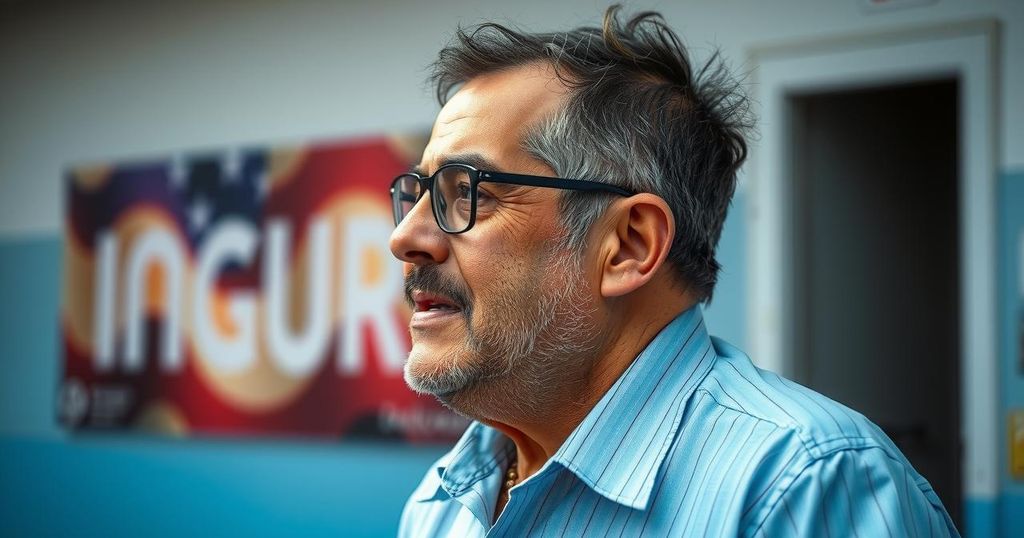Edmundo González Urrutia, Venezuelan opposition leader, is touring South America to secure international support in claiming the presidency after disputed elections. His visit occurs under threat from Maduro’s regime, which has dismissed the election results and issued a bounty for his capture. The international community is responding cautiously following the Guaidó experience, as González aims to unify opposition support by January 10 when he seeks to officially assume the presidency.
Edmundo González Urrutia, the Venezuelan opposition leader, is currently on a regional tour, including a visit to Montevideo, Uruguay, where he aims to secure international support for his claim to the Venezuelan presidency following his announcement of victory in the disputed July elections. During his visit, he is scheduled to meet with Uruguay’s President Luis Lacalle Pou and Foreign Minister Omar Paganini, who publicly endorsed González’s assertion of electoral success.
González’s tour unfolds against a backdrop of rising political tensions, particularly from the Nicolás Maduro regime, which has disregarded the opposition’s election results and has placed a $100,000 bounty on González’s head. Exiled in Spain, González is pressing for global recognition of his leadership ahead of January 10, when he aspires to officially assume the presidency. However, due to the prior episode with Juan Guaidó’s failed leadership recognition in 2019, the international community is approaching the situation with increased caution.
Beginning in Argentina with a meeting with President Javier Milei, González plans to extend his travels to Panama, the United States, and the Dominican Republic in search of diplomatic support. Regarding Brazil, while President Luiz Inácio Lula da Silva has refrained from recognizing Maduro’s administration, the Brazilian government is attempting to mediate tensions and is contemplating a presence at Maduro’s inauguration, should an invitation be extended.
In Venezuela, plans for demonstrations supporting González on January 10 are being organized by the opposition, led by María Corina Machado, who has urged citizens to resist and celebrate his perceived electoral victory. Concerned over political prisoners, human rights organizations have highlighted a hunger strike initiated by detainees demanding their freedom. Recently, the Venezuelan Attorney General announced the release of over 1,400 prisoners, which the regime may use as leverage to engender support from foreign dignitaries at Maduro’s official events.
The international deadline for recognizing Guinea’s next president is set for January 10, marking the conclusion of Maduro’s current term which began in 2018. The post-January 10 developments in Caracas could have profound implications for regional stability.
The political landscape in Venezuela has been fraught with tension, particularly surrounding the legitimacy of its elections and the leadership claims of both Nicolás Maduro and the opposition. Edmundo González Urrutia, an emergent figure within the opposition, is striving to consolidate international backing following disputed elections. His predicament mirrors that of previous opposition leader Juan Guaidó, who struggled to gain sustained international support after initially being recognized as interim president in 2019. The engagement of various Latin American nations in this crisis, particularly Brazil and Uruguay, reflects a regional divide in how to address the authoritarian governance in Venezuela, as external recognition remains crucial for political legitimacy.
González’s tour indicates an urgent quest for legitimacy amidst a highly polarized political environment in Venezuela. The importance of international recognition looms large as both the opposition and Maduro’s regime prepare for the January 10 deadline. With previous experiences cautioning global leaders, it remains to be seen how much support González will garner amidst daunting challenges posed by the current Venezuelan government and its allies.
Original Source: en.mercopress.com






